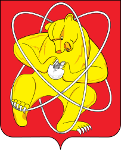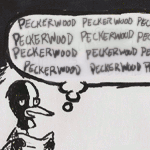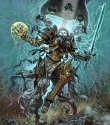|
HEGEL SMOKE A J posted:If I recall correctly, this was when almost all (all?) of the South American countries had their wars of independence, in addition to some of them fighting between themselves.
|
|
|
|

|
| # ? Jun 10, 2024 17:47 |
|
Rent-A-Cop posted:1864-70 had the War of the Triple Alliance, quite possibly the single bloodiest war in human history per capita. The winners lost 50% of their troops KIA, the losers lost 60-70% of their entire population. Something like 90% of Paraguayan men were killed in the war.
|
|
|
|
EvanSchenck posted:If you look at the period with the optics of old-school Eurocentric diplomatic history it makes sense to call it a century of peace (which is of course one reason that perspective is no longer taken seriously). The Napoleonic Wars and World War I both occasioned serious disruption to the normal system of international relations in Europe, whereas the wars in the intervening period forced significant adjustments (e.g. unification of Germany and Italy) but never to quite the same extent. In those terms you can also go ahead and exclude everything that took place outside Europe because if it mattered, it would have happened in Europe. American Civil War? Taiping Rebellion? Indian Rebellion? War of the Triple Alliance? Nope, don't matter. Yeah, hence the 'from an IR standpoint.' He's talking about an IR class not a history class. I'm not saying it's true, but aside from some short 'internal' adjustments, out and out war wasn't a thing between the great powers of the time (basically, GB, France, Austria, Prussia, Russia, aka. anyone with a pulse at Vienna). Even Bismark pantsing Austria and France happened very fast and involved a lot more backroom dicking about than considered usual. I just wanna clarify that I'm not defending the worldview and that I think IR people ought to have a much better foundation in history and maybe that they should expand their definition of 'conflict,' but that it is a 'correct' generalization about war as the IR majors would conceive of it. (E.g. major nation-states slugging it out to the last soldier.)
|
|
|
|
the JJ posted:(E.g. major nation-states slugging it out to the last soldier.) While both the Germans and in the end the Soviets had massive manpower strains, this doesn't even totally apply in WWII.
|
|
|
|
I had a Balance of Power class that covered the period for about 1/3 of the duration. He's sorta right in that there weren't massive coalition struggles to reshape the order of Europe/World during the period. Wars were permitted to allow for the controlled adjustment of the power balance without at the sametime threatening the existing system that benefited the Big Five (France, England, Russia, Austria, and Prussia). Essentially the status quo remained unaltered until 1870 with the German and Italian unifications but they didn't really significantly change the underlying system, but merely posed the recognition of what was long obvious, that France was no longer the military and economic leader of the continent, but Germany. While Italy could and did assert itself, it never amount to anything more than what was relatively the case a century prior with the different camps vying for Italian influence because it was strategically pertinent but not really. [Funny story, for my paper on the Concert of Europe I studied up on the evolution of the Balance of Power theory of the time, from Metternich to Bismark and later the British intellectuals and its interesting to see how the North German school (I forget the actual name) justified German Unification along Balance of Power concepts, while the British school evolved to become the theoretical groundwork for the United Nations and international institutionalism from which the Concert of Europe was the ultimate grandfather of.] Its true we had several major conflicts, but they were not relatively speaking comparable to the Hapsburg bid for mastery in the 1500's, the 30 Years war, the Seven years war, or the Napoleonic Wars in terms of impact and concerted national effort into achieving political and military aims; to either enforce your will on the international system or to prevent the otherside from doing so. The Taiping Rebellion while truly destructive and geographically large in scope (it *is* China afterall) was realistically an internal matter, not an international one that intended to usurp the international order. The 19th century, yes eurocentric but this was a time in which Europe largely eclipsed the rest of the world; it was defined by the Concert of Europe, pretty much a multinational arrangement that become a sort of proto-international institution focused on mediating through consensus a maintenance of the post-napoleonic status quo and then on suppressing the jacobins; eventually when adjusting the borders of Europe became impractical to resolve balance of power concerns they turned outwards to partitioning and assigning colonies as an alternative means of resolving power discrepancies. From a IR standpoint as echoed previously yes, the professor is correct to state that the concert of europe period was "the century of peace" as far as Europe was concerned compared to the devastation and drainage of national resources and blood of the previous century.
|
|
|
|
Yeah, basically to quote the late great Howard Zinn:quote:"History is the memory of states," wrote Henry Kissinger in his first book, A World Restored, in which he proceeded to tell the history of nineteenth-century Europe from the viewpoint of the leaders of Austria and England, ignoring the millions who suffered from those statesmen's policies. From his standpoint, the "peace" that Europe had before the French Revolution was "restored" by the diplomacy of a few national leaders. But for factory workers in England, farmers in France, colored people in Asia and Africa, women and children everywhere except in the upper classes, it was a world of conquest, violence, hunger, exploitation-a world not restored but disintegrated. the 19th century only appears peaceful and stable viewed from Westminister. I wouldn't even accept the claim that the international order was stable, not globally anyway. For a 19th century Chinese theorist of political philosophy the period was one of complete philosophical upset, in which their theoretical framework of international relations collapsed under the weight of European aggression.
|
|
|
|
I guess that is a fair point, but I'd still prefer to call it a "century of limited wars" rather than a "century of peace". There was no doubt a movement to reign back warfare from the form it had taken under Napoleon and back to the cabinet wars of the 18th century, which were rather limited in scope (7 Years War notwithstanding).
|
|
|
|
Ah yes, the 19th century to the height of the Napoleonic Wars, growth of bloody grab and take Imperialism and the messy crushing of the Paris Commune it was truly a peaceful century. Not to mention the love in that was the Boxer Rebellion. Sorry Waroduce I too couldn't resist.
|
|
|
|
|
I suppose you could argue that the only war that decided a major European political question was the German war. And that all those wars concluded in extensive condition and negotiations without major territorial shift. Maybe it was the century where the clausewitzian ideal of war as a method of diplomatic negotiation was practiced the most.
|
|
|
|
Which would be pretty ironic since Jomini was preferred at the time.
|
|
|
|
So I'm sort've having an argument with someone about the Korean War, this is related to the recent nuclear stuff where one person claimed China won't do anything because we would just nuke them back. I sarcastically replied that MacArthur thought the Chinese wouldn't cross the Yalu either and so I get this response:quote:Also, MacArthur didn't think the Chinese to come, but he also believed if they did, we'd just use our nukes, which was why he operated the way he did. Unfortunately for him, Truman was not on the same page. I am 100% sure that this is factually incorrect in that he's conflating different events in the Korean War as the same event. MacArthur, as far as I know, didn't think they would intervene due to American conventional and air superiority not because of nuclear weapons. And his plans to use nuclear weapons on the Chinese and North Korean interiors were only recorded after the Chinese took Seoul. His response to my Wikipedia binge posting: quote:You aren't proving me wrong. You are actually agreeing with me. The Chinese were openly stating their intention to be involved in Korea, MacArthur a top tier commander would have certainly been aware of this possibility. He may have gambled on it not happening, but to say he didn't even have a contingency plan for his contingency plan is to under estimate one history's brightest leaders. I'm pretty sure he's both factually incorrect and that's his OP doesn't match his response to me. Or am I the delusional one?
|
|
|
|
MacArthur didn't believe that the Chinese would invade because he "understood the Oriental mind" and knew that they ultimately wouldn't want to stand up to the might of the American army. He also ignored army intelligence, which was saying, "hey, there's an awful lot of Chinese soldiers in North Korea", army strategists who were saying "just stop at the bottleneck north of Pyongyang, those mountains are a bitch and winter's coming and we've just captured 3/4ths of the Korean population and industry" and also the Chinese themselves, who were saying (via the Indian ambassador) "we really really don't want the Americans on our border and we're gonna move to stop that if they keep advancing". But no, MacArthur just had to conquer Korea to use it (and Taiwan) as springboards to bring democracy and christianity back to China. Mind you, this is all according to Halberstam, who seemed to have an axe to grind with MacArthur. What is certainly clear was that MacArthur let his ego, his racism and his hatred of the Commies override his judgment which led to one of the biggest disasters for American arms since the ACW.
|
|
|
|
Does anyone really have anything good to say about MacArthur these days?
|
|
|
|
Alchenar posted:Does anyone really have anything good to say about MacArthur these days? It's a good thing Truman was able to stop him. MacArthur was the inspiration for General Ripper and history now looks poorly on reckless brinkmanship. He handled the occupation of Japan fairly well, but in times of war he couldn't think realistically about diplomacy and peace.
|
|
|
|
tonberrytoby posted:Maybe it was the century where the clausewitzian ideal of war as a method of diplomatic negotiation was practiced the most. Okay, pet peeve time: that is not what Clausewitz wrote or meant. His famous quote is rendered in German as "Krieg ist die Fortsetzung der Politik mit anderen Mitteln", the actual quote is "Wir behaupten dagegen, Krieg ist nichts als eine Fortsetzung des politischen Verkehrs mit Einmischung anderer Mittel." (We declare instead, [that] war is nothing more than the continuation of the political process with the addition of other means.) The German Politik is difficult to translate into English because it means both politics (i.e. the process) as well as policy (i.e. the result of the process). Clausewitz very obviously meant both, although the actual quote leans more towards the former. But as far as Clausewitz was concerned, war very much belonged to the sphere of the political, and he postulated that both the political process in and the policies of a state shaped the way it fought its wars. Or to give a better example, the way the Wehrmacht fought in Russia is very much dependent on the political situation at home. the first is obvious, because they would never have invaded if Hitler hadn't decided on it. But the way the conducted themselves and the goals they pursued were also shaped by Nazi policy such as Lebensraum and racial superiority, and both of those can not be subsumed by the term "diplomacy".
|
|
|
|
Alchenar posted:Does anyone really have anything good to say about MacArthur these days? I'm glad he didn't try a coup.
|
|
|
|
The man really was a complete tool. Didn't he lead the needless Military crackdown on World War 1 Veterans during the Great Depression?
|
|
|
|
|
He was also the first Chief of Staff to throw any real weight into mechanization, even if he wasn't thrilled with the idea of tanks.
|
|
|
|
SeanBeansShako posted:The man really was a complete tool. Didn't he lead the needless Military crackdown on World War 1 Veterans during the Great Depression? Yep. And he botched the initial Japanese invasion of the Philippines so loving hard.
|
|
|
|
Shimrra Jamaane posted:Yep. And he botched the initial Japanese invasion of the Philippines so loving hard. He botched the return as well.
|
|
|
|
Shimrra Jamaane posted:Yep. And he botched the initial Japanese invasion of the Philippines so loving hard. How so? Is his one stroke of military genius Inchon?
|
|
|
|
Chamale posted:It's a good thing Truman was able to stop him. MacArthur was the inspiration for General Ripper and history now looks poorly on reckless brinkmanship. He handled the occupation of Japan fairly well, but in times of war he couldn't think realistically about diplomacy and peace. Not quite. While many men served as the inspiration for General Ripper, from what I understand he was mostly based on General Thomas Power, the head of the Strategic Air Command from 1957-1964 and was the author of such delightful quotes like "Restraint? Why are you so concerned with saving their lives? The whole idea is to kill the bastards. At the end of the war if there are two Americans and one Russian left alive, we win!" Allegedly Curtis LeMay regarded him as a sociopath, but I can't find a source on that at the moment.
|
|
|
|
Saint Celestine posted:How so? From what I remember he waffled on sending a bombing raid to Formosa to destroy Japanese positions, and by the time the orders came through the CAP at Clark Field was low on fuel, landed to refuel, and it was right then when the initial Japanese airstrikes destroyed most of the American planes on the ground.
|
|
|
|
Acebuckeye13 posted:From what I remember he waffled on sending a bombing raid to Formosa to destroy Japanese positions, and by the time the orders came through the CAP at Clark Field was low on fuel, landed to refuel, and it was right then when the initial Japanese airstrikes destroyed most of the American planes on the ground. Considering the fact the B-17s would have been over Formosa with no fighter escort, at the outer edge of their range facing a pissed-off nest of Zeroes, I'm not sure it would have made much difference. USAAF high-altitude bombing, especially at that stage of the was was pretty piss-poor. Getting blown up at Clark Field was a whole separate clusterfuck.
|
|
|
|
If Curtis Le May thinks you're insane, well goddamn, you probably are.
|
|
|
|
Shimrra Jamaane posted:That looks cool but I'm more looking for ones from the US. Check out the Internet Archive: http://archive.org/search.php?query=wwii%20newsreel%20AND%20mediatype%3Amovies I'm sure there's a lot more there if you play with the search terms.
|
|
|
|
Didn't McArthur do pretty good job in post-war administration Japan?
|
|
|
|
DarkCrawler posted:Didn't McArthur do pretty good job in post-war administration Japan? Oh yeah, I think what everyone agrees is that he made a very good diplomat/administrator. He was just not good at the job he was supposed to do during war.
|
|
|
|
Saint Celestine posted:If Curtis Le May thinks you're insane, well goddamn, you probably are. To quote from this archived thread: iyaayas01 posted:This dumb son of a bitch didn't even have a college education. He was the last flag officer in U.S. history to not have an undergraduate degree. His entry will be much shorter than Momyer's but he makes the list for one reason: not only did he try to start WWIII, he firmly believed global thermonuclear war would be a good thing. He was a bomber guy through and through, flying missions over Italy and North Africa during WWII and taking part in the fire raids on Japan. He rose through the ranks after the war until he took command of SAC from Curtis LeMay in 1957. Although Power was publicly considered LeMay's protégé, privately LeMay stated that Power was "not stable" and a "sadist." Let me say that again. This is a dude who CURTIS loving LEMAY considered unstable and a sadist. During a discussion of a counterforce strategy (where you target the other side's nuclear weapons in an attempt to disarm them while restraining from targeting population centers vs a countervalue strategy where you intentionally target the other side's population) he stated "Restraint? Why are you so concerned with saving their lives? The whole idea is to kill the bastards. At the end of the war if there are two Americans and one Russian left alive, we win!" That was not a joke, or dark humor...that was what he honestly believed. Finally, when SAC went to DEFCON II during the Cuban Missile Crisis he broadcast , on his own authority, a message in the clear (ensuring the Soviet's would receive it) that basically said in so many words: "Hey you communist fuckers, we're ready, willing, and just itching to drop some bombs on you, bring it on." Then SAC bombers pressed towards their fail-safe lines, knowing the Soviets would be monitoring them. He was the inspiration for General Ripper...you know, the dude in Dr. Strangelove who obsesses about Communist sapping his precious bodily fluids, orders an unauthorized nuclear strike, and then blows his head off. Kind of says it all.
|
|
|
|
Thanks for all the discussion on my little topic of a "Century of Peace". The TA just emailed us power point slides, and one of them reads as quote:- The Congress System rapidly broke down, primarily because of the ideological cleavage between liberal Britain and profoundly conservative Russia, Prussia and Austria. Nevertheless, the Vienna Settlement was by no means a failure. It is a fact that Europe did not suffer a general war for almost a century, 1815-1914. That strategic historical fact was determined by the play of several factors, but it is necessary to allow some credit to those who designed and sometimes practiced Congress and later Concert diplomacy So, the prof seems pretty wedded to this concept. I can see where he is arguing from, that there were no major structural power realignments or reordering, but shouldn't the things that you all discussed, such as the unification of Germany, S.American independence, the unification of Italy, the Russo-Turkish War, and the Franco-Prussian war be considered conflicts with serious balance of power implications, even if they were not "general wars"? I'd imagine the way each of these conflicts played out affected the prestige/power/capability/standing of each nation and possibly their neighbors as well. If I were to attempt to take the opposite view (he enjoys discussions in office hours), that there was a prevalence of internationally relevant conflict in the time period, would it be disingenuous to touch on internal rebellions? Things like the American Civil War, Boxer Rebellion, and Taiping being internal conflicts which could affect the ability to project power, or appear strong in the international system? (Obviously, I would need to research if this occurred,how and its effects.) I understand some of these didn't take place in Europe, but surely there was some type of impact. I'm finding it hard to believe the international system was so stable that it underwent no significant change for 100 years. Waroduce fucked around with this message at 01:29 on Mar 20, 2013 |
|
|
|
Waroduce posted:shouldn't the things that you all discussed, such as the unification of Germany, S.American independence, the unification of Italy, the Russo-Turkish War, and the Franco-Prussian war be considered conflicts with serious balance of power implications, even if they were not "general wars"? Yes. He's insane. DarkCrawler fucked around with this message at 01:33 on Mar 20, 2013 |
|
|
|
Yeah, the dude is insane.
|
|
|
|
|
I think the question is; what happens if The Franco-Prussian War doesn't end in a swift Prussian victory and instead is dragged out in American Civil War style. Does it become a general conflict? i.e. Are there good reasons why Europe didn't have a general war during this period or was it lucky happenstance that the flashpoints didn't take light?
|
|
|
|
Saint Celestine posted:How so? Betting your house on lucky number 7 coming up in roulette doesn't make you a financial genius... it just makes you lucky. Same with Inchon; it had the potential to be a clusterfuck because it was a terrible place to make an amphibious landing. The Chinese, the Soviets, the press corps all knew MacArthur was landing there. The Soviets and Chinese warned the North Koreans that it was gonna happen and how to avert it. The only person who didn't believe it was Kim Jong Sun, for the basic reason that he didn't think anyone would be stupid enough to try to land there.
|
|
|
|
Waroduce posted:shouldn't the things that you all discussed, such as the unification of Germany, S.American independence, the unification of Italy, the Russo-Turkish War, and the Franco-Prussian war be considered conflicts with serious balance of power implications, even if they were not "general wars"? Absolutely. One way to look at it is for his assertion to be true, you would have to apply so many qualifiers to the rule (not in Europe, not a revolt nor civil war, not a war between just two nations, "apart from those wars", not a "total" war, etc etc) that it doesn't really mean anything anymore.
|
|
|
|
Try and have him frame it some more. Does it only count if 10+ million people die?
|
|
|
|
He had style. Corncob pipe. Sunglasses.
|
|
|
|
Saint Celestine posted:How so? I think that he made some really bad decisions where to place his soldiers, he then received a medal of honor for losing the Phillipines as well.
|
|
|
|
Waroduce posted:I'm finding it hard to believe the international system was so stable that it underwent no significant change for 100 years. Like I said earlier, it's an issue of periodization and perspective. If you mark off 1815-1914 as your period and Europe as your area, then the French Revolution/Napoleonic Wars and the two World Wars are your bookends. Compared to those periods of conflict, 1815-1914 is very stable indeed as far as Europe is concerned. From an IR perspective one thing that is particularly notable is that following those particular wars the powers recognized that they needed to come together and have a big meeting to create a new system to govern their mutual relations--i.e. after the Napoleonic Wars they had the Congress of Vienna, after WWI they tried and failed with the League of Nations, and after WWII they set up the UN and basically the whole system of current international relations and law. There were 19th century wars that caused significant changes to the European system, but none to the extent that all the governments met to put their heads together and figure out how to stop the next war from even happening. If you take a different period, like 1700-1914, you would likely get a different impression altogether. Since I studied history my view on this is jaundiced, because from my point of view the international system you're studying in this class is more notable for what it excludes than for what it includes. On the other hand from a purely functional perspective if you're trying to come to an understanding of how the governments of the European powers made decisions in foreign policy and how they related to one another, it actually isn't such a huge problem to do this, because you're actually just replicating the same dismissive attitude that was typical of the stuffed-shirt ruling class in those countries. For example, how much did the foreign ministries of Britain, France, Austria, and Russia care about the Taiping rebellion? Probably not a whole lot. E: To put this more succinctly, you could say that you're not so much studying what actually happened as you're studying what the European ruling class imagined was happening. Schenck v. U.S. fucked around with this message at 02:27 on Mar 20, 2013 |
|
|
|

|
| # ? Jun 10, 2024 17:47 |
|
SeanBeansShako posted:Ah yes, the 19th century to the height of the Napoleonic Wars, growth of bloody grab and take Imperialism and the messy crushing of the Paris Commune it was truly a peaceful century. It's also funny to me because the Iberian peninsula spent the 19th century in civil wars, regional revolts and fears of possible invasions by their neighbors and seeing their economies\political power being taken over by outside powers. And the struggle for domination over China, Africa and the lost of political domination over the American continent led directly to the first world war. People were waiting for the war by the end of the 19th century. The 19th century was the century of revolutionaries, whose fear directly influenced the way the elites governed (introduction of welfare systems, nationalism, African and Asian expansionism)... Jesus Christ, how old is that guy? Is he one of those edgy teachers who doesn't even know what the Annales school was?
|
|
|

























